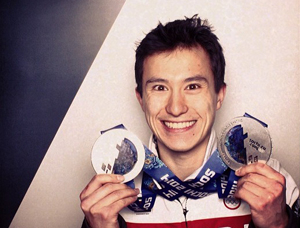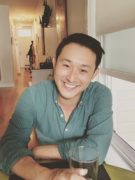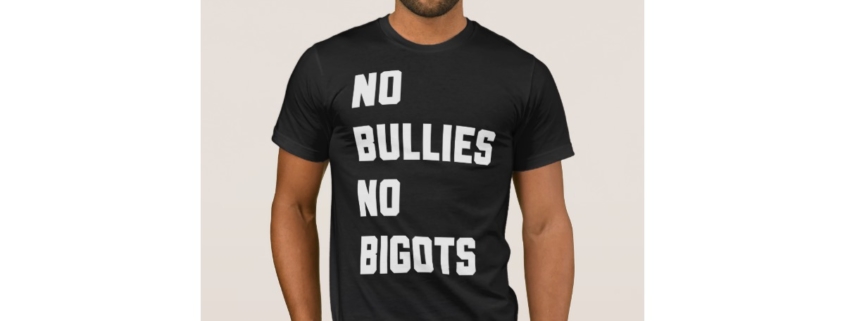Live, Work, Skate
You’re ten years old and your father says you’re handsome. The most handsome boy in the whole world, he says. In the same breath, he tells you no white girl will ever date you, let alone marry you. He knows this from experience, from his time at a New Jersey college before meeting your mother. Most women don’t find Asian men attractive, he says before opining that the opposite is true for your three sisters.
You stare blankly back at him…you don’t even like girls, you think to yourself. You say nothing.
A decade later, you learn it’s more complicated.
* * *
No fems, fats, or Asians. You read this headline in dozens of gay dating and hook-up profiles, until it is deemed socially unacceptable. You see it less and less until one day, you don’t see it anymore. You miss it. In a sea of headless torsos, the headline is a filter that expedites the process of elimination. You are efficient.
You stop initiating contact with men on websites and apps. You fear one would write the headline, if allowed. You are risk-averse.
You learn that white men will date you, maybe even marry you, but they’re a somewhat uncommon type of gay – a rare, exotic species. You also learn that the white men who desire you are often only into Asian men. You later find out these men are called “rice queens.” To this day, the term makes your skin crawl. You prefer the Latin translation, Reginae Oryza (plural) and Regina Oryza (singular). You are pretentious.
“I only find Asian boys attractive,” says the Regina Oryza, “I love that all of you have such smooth, hairless bodies.”
Once the Regina Oryza says or writes some variation on this theme, he is dead to you. You don’t return his messages or calls. You don’t even feel guilty about it. You rationalize that of the two billion Asian men on earth there is probably at least one who is stupid or desperate enough to date the Regina Oryza. In fact, you are surprised to learn there are many.
You continue to sleep with white men, but refuse to date them. When marriage equality passes, you vow not to marry one, even though you occasionally cross paths with nice white men. Smart white men. Good white men. Woke white men. If you lived in Texas, you would have certainly voted for the one with the bunny face and Mexican nickname who ran for Senate and lost. However, none of these white men are a member of the rare species, Reginae Oryza. And even if one of them was, you wouldn’t want him.
You date other Asian men and learn many do not prefer you and would rather compete for the attention of the Regina Oryza.
You date brown and black men, exclusively. Dating improves, temporarily. You learn brown and black men can be Reginae Oryza, as well.
And you remain single.
Then you do not date or sleep with anyone anymore.
* * *
You focus on your work since it is something you can control and you’re good at it. You take on consulting projects in areas with no discernible solution: the HIV/AIDS epidemic in Sub-Saharan Africa, climate change in China, racial disparities in public education. You are awarded a highly-competitive, one-year fellowship to reform healthcare in the local jails.

Source: Wikipedia
You conduct research, talk to experts, make PowerPoint slides. You present recommendations to executives with MBAs and MDs and big-wigs who wear guns on their hips, even in the Board room. You learn that the ones with the guns make all of the important decisions. Everyone smiles and says they’re impressed though nothing changes.
Later, you learn no one else wanted the highly-competitive, one-year fellowship.
You continue to collect your fellowship stipend. You use this money to buy pot, which was recently legalized in your state, and smoke it, while watching the Winter Olympics. You are jealous of all of the athletes’ talent. You are even more jealous of their youth. You stumble upon the Men’s Figure Skating event, and you are mesmerized by the men’s strength and grace, a respite from the jails you’ve failed.
You root for the American gold-medal favorite who is Asian. He can do four types of quad jumps. He falters in the Short Program and places fifth. You notice he’s cute, but only eighteen, which in your rulebook is too young to incite dirty thoughts. You then notice another skater who’s Asian, a Canadian, also cute, but twenty-seven, and hence more acceptable to incite dirty thoughts. He can only do one kind of quad jump. However, you think he is a far better skater than the young one. The commentators say the Asian-Canadian’s artistry is unmatched, something about his deep edges, speed, and how he positions his head and arms as he whizzes and spins across the rink.
Soon after the Olympics, the Asian-Canadian retires.
 Still, you watch the Olympic replays of the Asian-Canadian late into the night and into the weekend. You wince when he falls, which is often, but you forgive him since everything else he does on the ice is so sensual. When you grow tired of the replays, you watch his old performances on YouTube. You sob during his Free Program at the 2015 Skate Canada International competition. You watch old interviews of him and he sounds like a dopey teenager, yet you swoon at his aw shucks smile and girlish giggles that sometimes bookend his phrases. You plan a trip to visit a close friend in Vancouver, where the Asian-Canadian lives. You plan on using his Instagram feed to track his location so you can casually run into him and ask for an autograph. You realize this is very creepy. You ask your friend in Vancouver not to allow you to do this.
Still, you watch the Olympic replays of the Asian-Canadian late into the night and into the weekend. You wince when he falls, which is often, but you forgive him since everything else he does on the ice is so sensual. When you grow tired of the replays, you watch his old performances on YouTube. You sob during his Free Program at the 2015 Skate Canada International competition. You watch old interviews of him and he sounds like a dopey teenager, yet you swoon at his aw shucks smile and girlish giggles that sometimes bookend his phrases. You plan a trip to visit a close friend in Vancouver, where the Asian-Canadian lives. You plan on using his Instagram feed to track his location so you can casually run into him and ask for an autograph. You realize this is very creepy. You ask your friend in Vancouver not to allow you to do this.
You read the news.
You learn the Asian-Canadian skater has a white girlfriend.
You stop smoking pot.
You sign-up for figure skating lessons. You are the only male in the Adult Beginners class and the only student over forty. You are bothered by this, which also bothers you, but not enough to keep you from showing up every week. You fall on your knees. You fall on your face. You land on your ass. You eventually skate around the rink without falling. You learn to skate backwards. You glide backwards on your skates at full-speed, the wind blowing through what’s left of your salt and pepper hair. Finally, you feel beautiful.
 Tom Pyun is an essayist and novelist living in Los Angeles. He was a fellow with Vermont Studio Center, Gemini Ink, Tin House, and VONA. His work has appeared in the Rumpus, Blue Mesa Review, Eleven Eleven, and Reed and has been nominated for a Pushcart Prize and a Best of the Net award. He holds degrees from Vassar and Columbia and is an MFA candidate at Antioch.
Tom Pyun is an essayist and novelist living in Los Angeles. He was a fellow with Vermont Studio Center, Gemini Ink, Tin House, and VONA. His work has appeared in the Rumpus, Blue Mesa Review, Eleven Eleven, and Reed and has been nominated for a Pushcart Prize and a Best of the Net award. He holds degrees from Vassar and Columbia and is an MFA candidate at Antioch.





